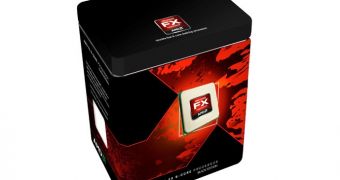Much hype surrounded the FX-Series Bulldozer chips, but the performance ended up underwhelming and, predictably, analysts have begun to express their less than hopeful outlooks for AMD's future.
By now, people will have probably heard about how Advanced Micro Devices finally launched its coveted FX Series CPUs, only for benchmarks to disappoint.
The Sunnyvale, California-based outfit did say it wants to increase the performance every year, but no one forgot that Intel will bring out Sandy Bridge-E and other chips as well.
All in all, it seems that AMD has somehow managed to push itself into a corner, since it doesn't seem to have anything that can compete with Intel right now.
To this is added another issue, namely AMD's lack of any processors for the mobile market, or at least insufficient coverage. The company also holds to its x86 everywhere strategy instead of partnering with ARM in some way or another.
One analyst was particularly blunt in its assessment, saying that Advanced Micro Devices risks descending into irrelevancy.
“Third-party reviews indicate that the performance of new products based on the Bulldozer architecture is disappointing – this means that AMD will likely remain a bystander in the ongoing data center build cycle (which has accrued significant benefit to Intel), and will now also miss a window to compete in consumer PCs.”
The dissatisfaction that AMD has with Globalfoundries is another matter (of fact), and even spawned rumors about a possible switch to TSMC.
“It’s difficult to remember the last product AMD launched on time, and it is now evident that, even aside from manufacturing challenges with partner GlobalFoundries, AMD’s technology roadmap is severely lagging,” wrote MKM Partners analyst Daniel Berenbaum.
“It’s difficult to recommend aggressively shorting AMD with the stock already at $5, but we maintain our view that AMD is being structurally squeezed by poor competitive positioning and longstanding operational struggles.”
Basically, the feeling is that AMD might want to change its mind about ARM and try to use the architecture alongside tis x86 projects.
“AMD is on the verge of sinking into irrelevancy as ARM-based competitors gain share in low-end computing and Intel extends its advantages in performance and manufacturing.”

 14 DAY TRIAL //
14 DAY TRIAL //